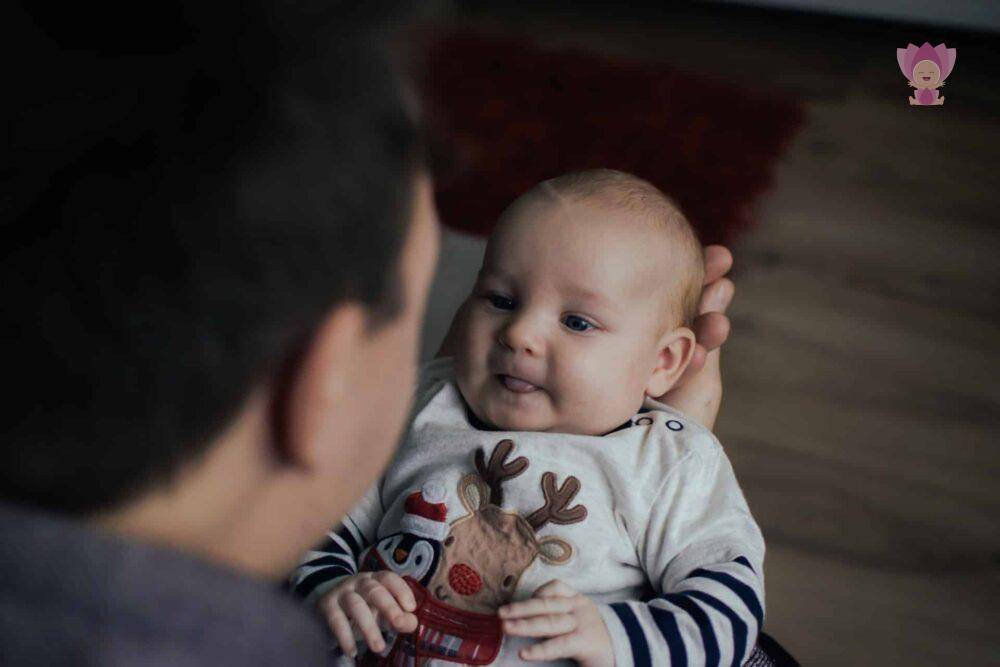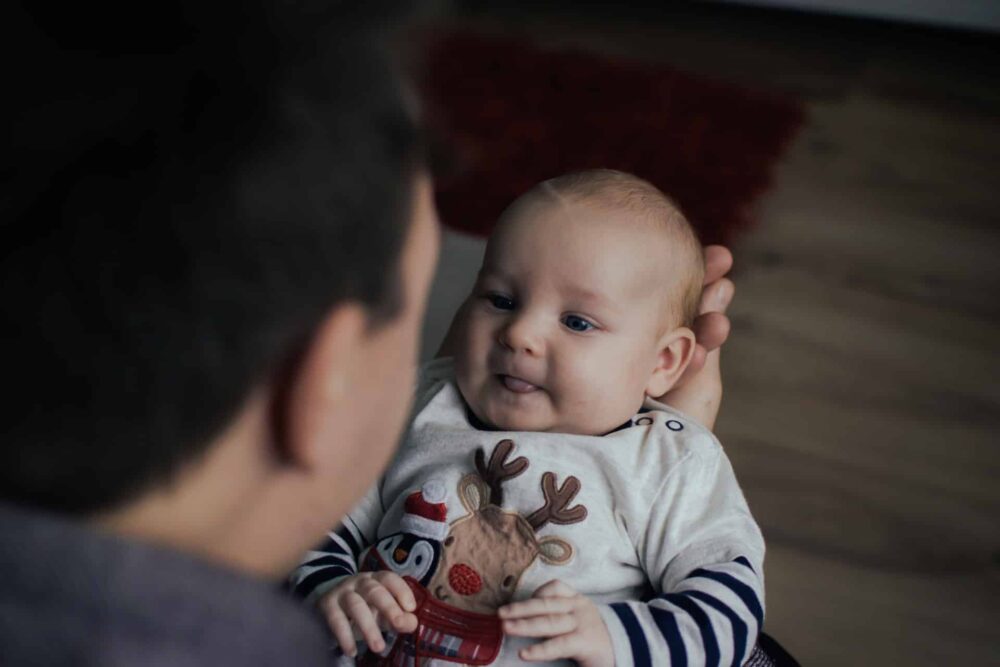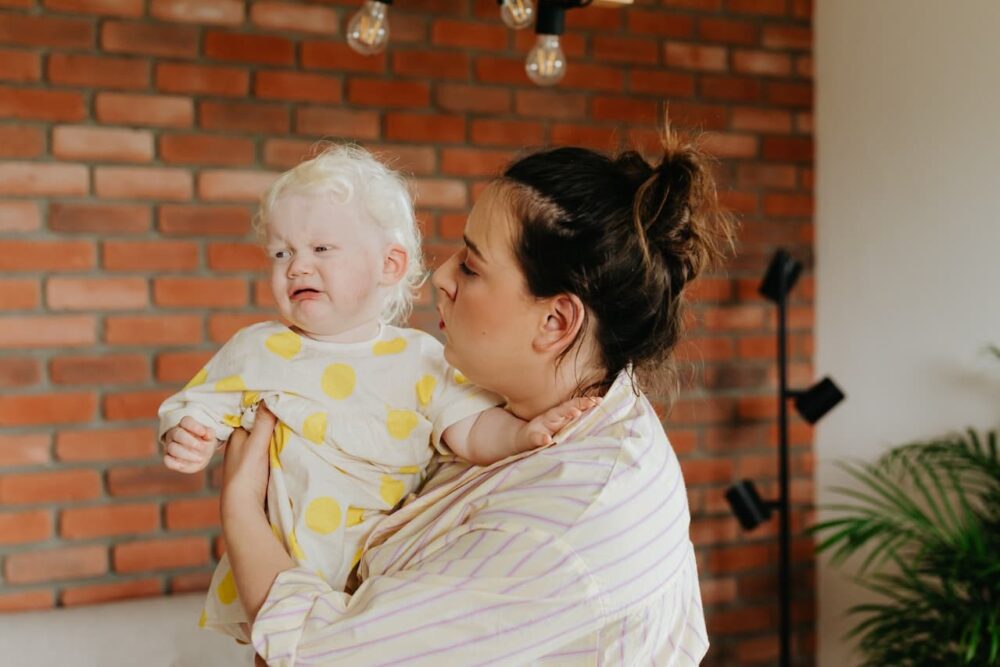Mind-minded parenting – Parents’ early mind-mindedness can boost children’s self-regulation

Key takeaways for caregivers
- Mind-mindedness is the ability of parents to accurately read and label their children’s thoughts, feelings, and wishes.
- Both mothers’ and fathers’ mind-mindedness in the first years of children’s lives play an important role in children developing the ability to regulate their emotions and behaviors.
- Parents can cultivate mind-mindedness by paying close attention to their children’s behavior and taking time to reflect on and label their children’s thoughts, wishes, and emotions.
What is mind-mindedness parenting?
I have vivid memories of the first weeks of motherhood, feeling anxious and confused about why my baby was crying. I wondered: Why is she crying? How is she feeling? Does she want something other than food? Maybe she just wants to be cuddled? As time passed, I began to understand my baby’s wishes and emotions more clearly. Talking to other new parents, I realized that parents differ in how much they can understand their children’s minds.
This ability of parents to think about their children as individuals with their own thoughts, feelings, and wishes, and to label these experiences in their interactions with them is called mind-mindedness. Parents with this ability accurately read their babies’ minds and label their mental states. This might involve reflecting on a child’s emotional experiences or verbalizing their wishes.

Photo: Egidijus Bielskis. Unsplash.
For example, when a child starts crying after their toy broke, a mind-minded parent might say, “You seem upset that your toy broke. You wanted to play with this toy.” In contrast, parents who misinterpret their children’s mental states (e.g., assuming the child is crying because they are tired and do not want to play anymore) demonstrate non-attuned mind-mindedness.
How does mind-mindedness parenting help children?
Parental mind-mindedness plays an important role in the development of children’s self-regulation. Self-regulation is a critical skill that enables children to manage their emotions and behaviors in response to what a situation demands (Eisenberg, 2000; Kochanska, 1993). As children reach the age of four or five and begin school, the demands for self-regulation increase. Starting a these ages, children need to stay focused, pay attention to learning goals, and actively participate in learning in the classroom so self-regulation becomes especially important (e.g., Nota et al., 2004).
Boosting self-regulation
Self-regulation in preschool is not only important for later academic achievement – accumulating evidence suggests that it is also essential for children’s social adjustment and mental health. Preschool-age children who can adequately regulate their emotions and behaviors have more successful relationships with others, are more socially competent, have healthier life habits, and are at a lower risk for developing mental disorders (Robson et al., 2020).
The ability of parents to think about their children as individuals with their own thoughts, feelings, and wishes, and to label these experiences in their interactions with them is called mind-mindedness.
Several studies have examined the role of parental mind-mindedness in the development of self-regulation in infants and toddlers. They have shown that mothers’ and fathers’ mind-mindedness is associated with emerging self-regulation abilities in infancy and toddlerhood (Cheng et al., 2018; Gagné et al., 2018; Senehi et al., 2018; Zeegers et al., 2019). However, it remains unclear whether parental mind-mindedness at these ages plays an important role for self-regulation in preschoolers. This is especially important to determine since self-regulation at preschool age predicts various life outcomes.
The connection between parental mind-mindedness and preschoolers’ self-regulation
My colleagues and I set out to address this question. In our recent study (Nikolić et al., 2022), we investigated whether mothers’ and fathers’ mind-mindedness in the first three years of a child’s life predicts the development of self-regulation at four and a half years.
We predicted that appropriate mind-mindedness in parents would help children develop good self-regulation because children would learn about their inner states from parents who accurately reflect on and label their mental states (e.g., when a child is sad and the parents reflect on the child’s sadness, the child becomes aware of the feeling and starts to understand it). In contrast, non-attuned mind-mindedness in parents would hinder the development of self-regulation because children whose parents misinterpret their thoughts, wishes, and feelings may feel misunderstood and would not learn to understand their mental states from their parents.

Photo: Karolina Grabowska. Pexels.
We assessed mothers’ and fathers’ mind-mindedness in the first three years on multiple occasions by observing their interactions and conversations with their children during playtime. We then measured preschoolers’ self-regulation at the age of 4.5 in several ways. First, we asked parents about their perception of their children’s effortful control, or their capacity to voluntarily focus attention and suppress an inappropriate response or activate an appropriate response to adjust to a situation (Eisenberg, 2005). For example, the ability to prioritize sitting quietly and listening to the teacher over playing with a friend is an aspect of effortful control.
Second, the children completed behavioral tasks in the lab, where we asked them to keep their hands placed on a mat on the table while choosing a prize from a box filled with small toys or a box filled with candies (Kochanska et al., 1997). This task required children to follow instructions and inhibit a dominant response (i.e., touching or pointing to a toy or candy). Finally, we measured children’s heart rate variability during rest – a bodily response related to physiological regulation (Porges, 1997).
Mind-mindedness in the first three years of a child’s life
Both mothers’ and fathers’ mind-mindedness in the first three years of their children’s lives contributed significantly to their preschoolers’ self-regulation. Fathers who were more mind-minded with their babies and toddlers had children who were better at self-regulation when they started school. In contrast, mothers and fathers who were more non-attuned and often misinterpreted their children’s mental states had children who were less able to self-regulate when they started school.
Fathers who were more mind-minded with their babies and toddlers had children who were better at self-regulation when they started school.
These findings provide the first evidence that both mothers’ and fathers’ mind-mindedness in the early years matters for children’s self-regulation in preschool. They also emphasize the role of fathers’ attunement to their children’s mental states in early years for the development of self-regulation at preschool age.
How can parents cultivate mind-mindedness?
What does this mean for parents? While it may not be surprising that a strong parent-child bond has positive effects on a child’s socioemotional development, our study’s findings highlight the unique importance of both mothers and fathers in being mindful of their children’s internal experiences to promote self-regulation early in life.
Parents can pay close attention to their children’s behavior and cues, and take time to reflect on and label their children’s thoughts, wishes, and emotions. By doing so, parents can help their children develop an understanding of their own inner life, making self-regulation easier. And the best part? It is never too early to start this practice – even talking about mental states with your child before they can speak can help them develop this important life skill.
















Leave a comment